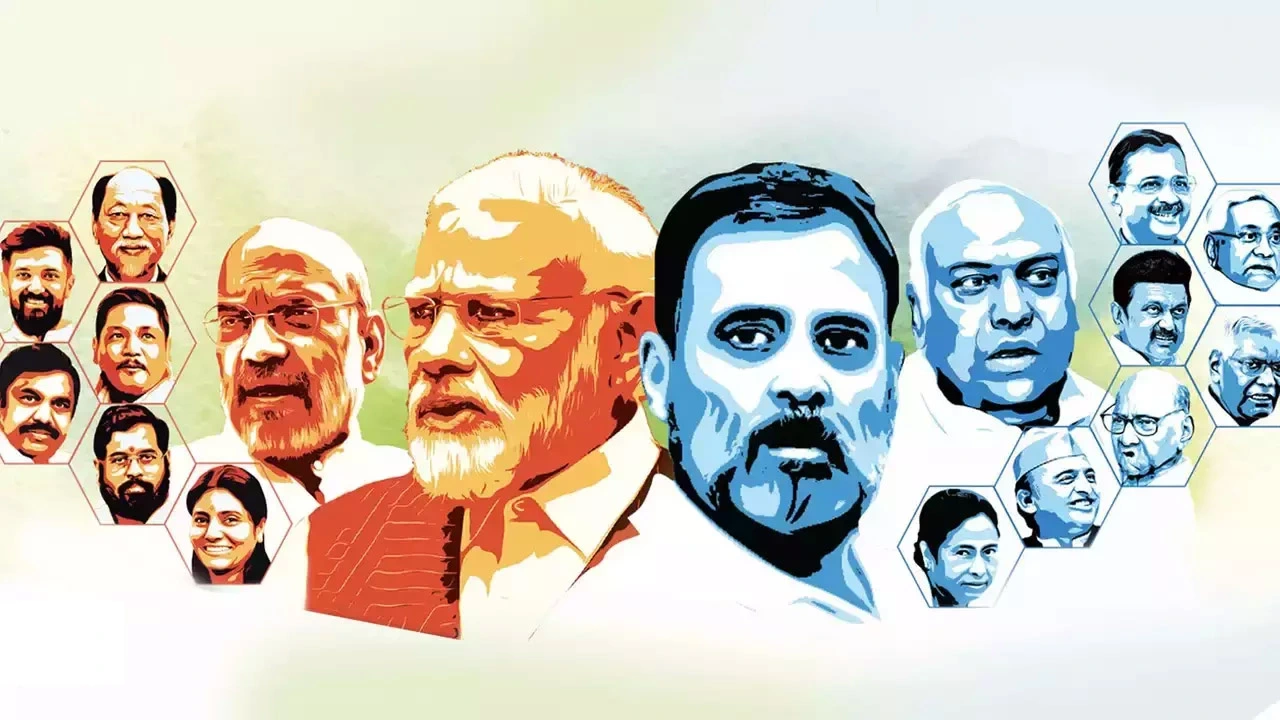In the run-up to the 2024 Lok Sabha elections, the political landscape of India is a buzz with heated debates and contrasting narratives. While the Opposition’s I.N.D.I.A Alliance aims to present a united front, the incumbent National Democratic Alliance (NDA) led by Prime Minister Narendra Modi is seeking another term based on its track record and vision for the nation’s future. As the campaign trails heat up, several compelling arguments emerge in Favor of the NDA’s re-election, encompassing decisive leadership, national security, policy continuity, foreign relations, cultural identity, and social welfare initiatives. Without any political bias, the article is ased on the prevailing geopolitical landscapes, the driving forces behind the growth of nations, and the presence of stable governments with robust policies, we have outlined the following analysis:
1. Decisive Leadership and Strong Stance on National Security
India’s security challenges, both internal and external, demand a resolute and decisive leadership at the helm. Under Prime Minister Narendra Modi’s administration, the NDA government has demonstrated an unwavering commitment to safeguarding the nation’s interests and responding firmly to threats. The surgical strikes across the Line of Control in 2016 and the Balakot air strikes in 2019 sent a strong message that India will not tolerate cross-border terrorism.
Moreover, the government’s bold decision to abrogate Article 370, which granted special status to Jammu and Kashmir, was a pivotal move towards integrating the region with the rest of the country. This decisive action garnered widespread support, with a Pew Research Center survey indicating that 63% of Indians favored the constitutional changes in Kashmir.
2. Stable and Majority Government: Ensuring policy continuity
One of the NDA’s key strengths is its ability to provide a stable and majority government at the center, allowing for continuity and effective implementation of policies. In contrast, coalition governments often face challenges in decision-making and policy execution due to the diverse interests of multiple partners.
Under the NDA’s leadership, several flagship programs have been introduced and successfully implemented, such as the Pradhan Mantri Jan Dhan Yojana (PMJDY), which has brought over 460 million unbanked individuals into the formal banking system. The Ayushman Bharat scheme, which provides annual health coverage of up to ₹5 lakh to over 100 million families, is another testament to the government’s commitment to inclusive development.
3. Robust and impactful Foreign Policies that enhance the nation’s interests
On the foreign policy front, the NDA government has pursued a proactive and assertive approach, prioritizing India’s national interests while fostering strategic partnerships. The “Neighborhood First” policy has strengthened ties with neighboring countries, while the “Act East” policy has deepened engagement with Southeast Asian nations.
Furthermore, the government’s stance on global issues, such as climate change and terrorism, has garnered international recognition. India’s leadership in the International Solar Alliance and its call for a united global front against terrorism have positioned the country as a responsible and influential player on the world stage.
4. Overseeing and Restoring Social and Cultural Identity of India that is Bharat
Under the NDA’s governance, there has been a concerted effort to preserve and promote Bharat’s rich cultural heritage and identity. Initiatives like the “Beti Bachao, Beti Padhao” campaign, aimed at empowering girls and addressing gender discrimination, have resonated with a significant portion of the population.
Additionally, the government’s push for the revival of ancient Indian traditions and practices, such as Yoga and Ayurveda, has struck a chord with many Indians who take pride in their cultural roots. According to a survey by the Pew Research Center, 89% of Indians view the practice of yoga as somewhat or very important to their sense of national identity.
5. Empowerment initiatives aimed at uplifting Marginalized Communities
The NDA government has introduced and strengthened various social welfare schemes aimed at uplifting underprivileged and marginalized communities. The Direct Benefit Transfer (DBT) system has streamlined the delivery of subsidies and benefits, reducing leakages and ensuring that the intended beneficiaries receive their entitlements.
The Pradhan Mantri Awas Yojana (PMAY), a flagship housing scheme, has contributed to the construction of over 114 million houses for the economically weaker sections of society as of March 2023, according to government data. The Ayushman Bharat initiative, mentioned earlier, has provided accessible and affordable healthcare to millions of families, alleviating the financial burden of medical expenses.
6. Transforming Desired Government Policies to meet the Demands of Evolving Bharat
The NDA government has been proactive in introducing and implementing policies that cater to the evolving needs and aspirations of a rapidly developing India. The “Make in India” initiative, launched in 2014, has aimed to boost domestic manufacturing and attract foreign investment, positioning India as a global manufacturing hub. The Digital India program, which aims to transform the country into a digitally empowered society and knowledge economy, has made significant strides. As of January 2023, over 1.2 billion Indians have enrolled in the Aadhaar biometric identification program, enabling efficient and transparent delivery of government services.
Moreover, the government’s emphasis on infrastructure development, including the construction of highways, railways, and airports, has laid the foundation for sustained economic growth and improved connectivity across the country.
As the 2024 Lok Sabha elections result draw closer, the NDA’s track record and vision for a stronger, more prosperous, and inclusive India will be closely scrutinized by voters. While challenges and critiques persist, the government’s decisive leadership, commitment to national security, policy continuity, cultural preservation efforts, and social welfare initiatives present a compelling case for its re-election. Ultimately, the electorate’s verdict will shape the nation’s future trajectory, reflecting the aspirations and priorities of the diverse Indian populace.

